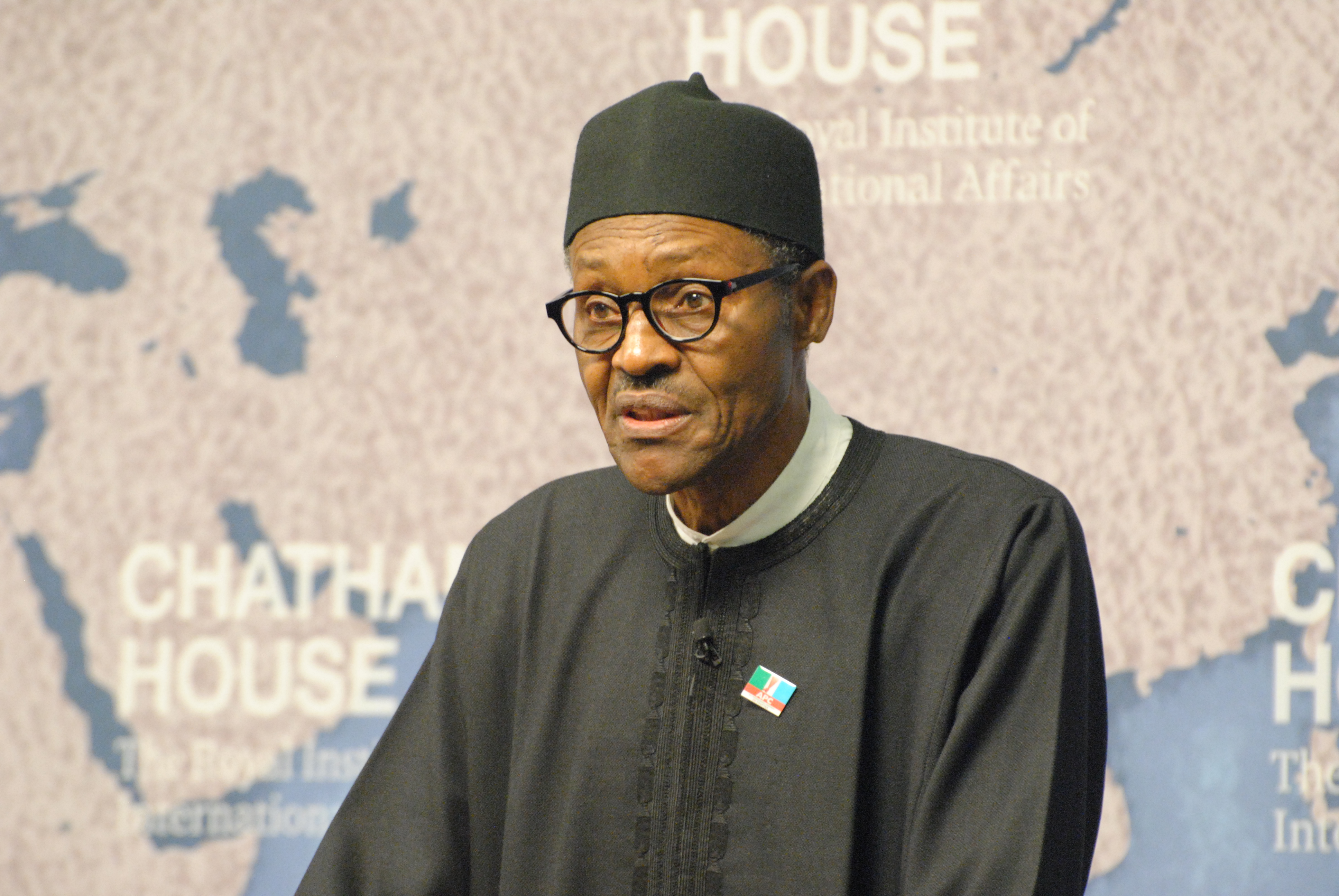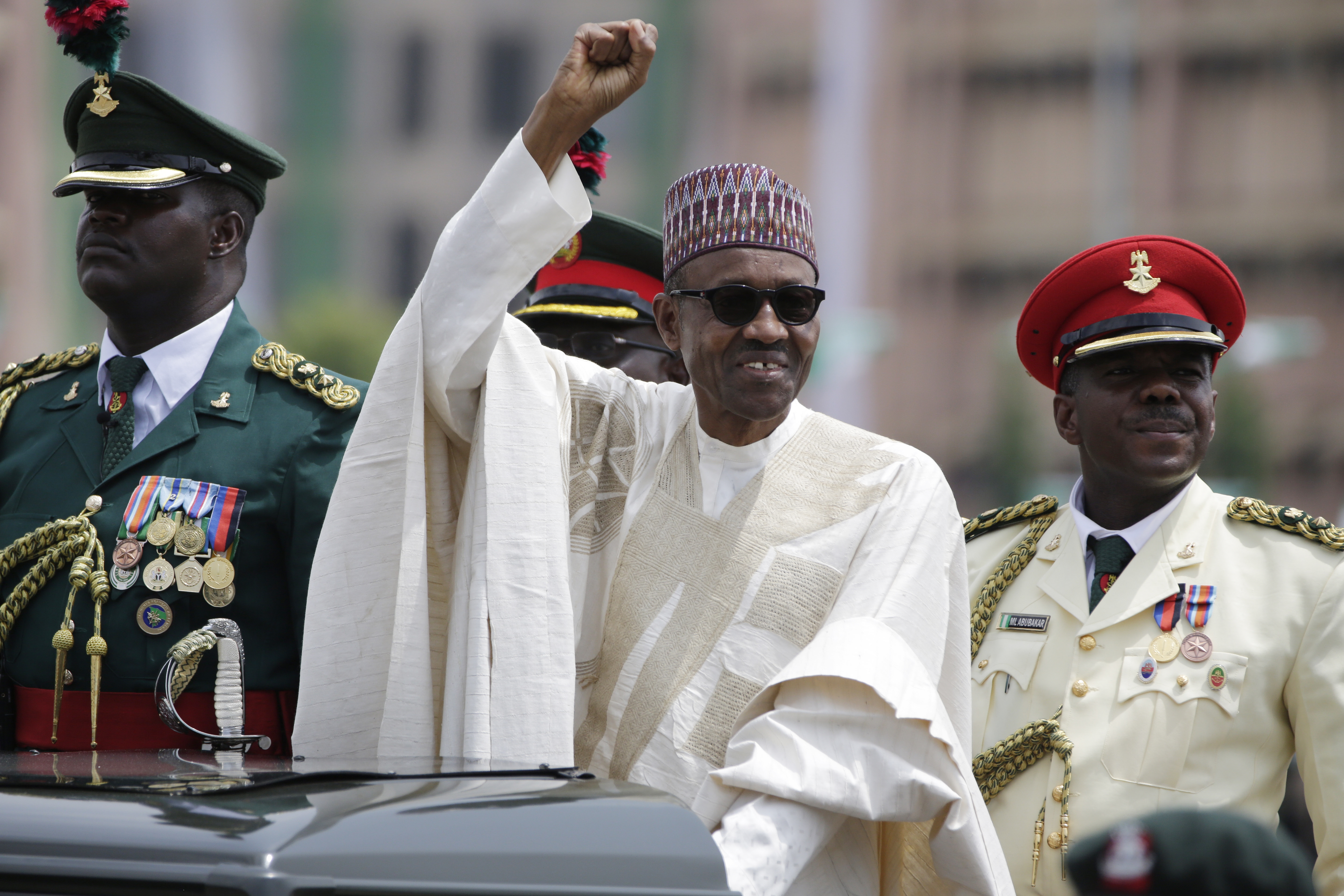Buhari, Muhammadu (1942-…), served as president of Nigeria from 2015 to 2023. Buhari is a member of the All Progressives Congress party. He defeated incumbent president Goodluck Jonathan in an election in March 2015. At the time of that election, Nigeria faced a number of challenges, including political corruption and shortages of electric power. Deadly attacks by Boko Haram, a terrorist organization that supports Muslim extremists in Nigeria, also plagued the nation at that time. Buhari was elected to a second term as president in 2019. A former general in the Nigerian Army, Buhari briefly ruled Nigeria as a dictator in the 1980’s.

Buhari was born on Dec. 17, 1942, in the far northern city of Daura, in Katsina state. He was born to a Muslim family of the Hausa ethnic group. Buhari began his military career in 1962 and became an officer in 1963. In July 1966, Buhari participated in a coup d’état (takeover) that overthrew and assassinated General Johnson Aguiyi-Ironsi. Aguiyi-Ironsi had led a coup to overthrow and kill Prime Minister Abubakar Balewa earlier in the year.

In 1975, Buhari served briefly as governor of what was then Nigeria’s North-Eastern state. In 1976, he became Nigeria’s commissioner for petroleum and resources and soon took over the state-run Nigerian National Petroleum Corporation. In 1983, Major General Buhari led a military force that expelled invading Chadian troops from northeastern Nigeria. On December 31, Buhari led a coup that ousted President Shehu Shagari, and Buhari took dictatorial powers. His regime, noted for its strict policies and human rights abuses, was itself overthrown in August 1985. Buhari was then detained until late 1988.
In the 1990’s, Buhari was named chairman of Nigeria’s Petroleum Trust Fund by the military dictator Sani Abacha. After military rule ended in Nigeria in 1999, Buhari ran unsuccessfully for president in 2003, 2007, and 2011.
